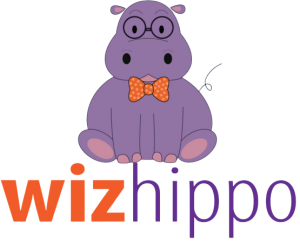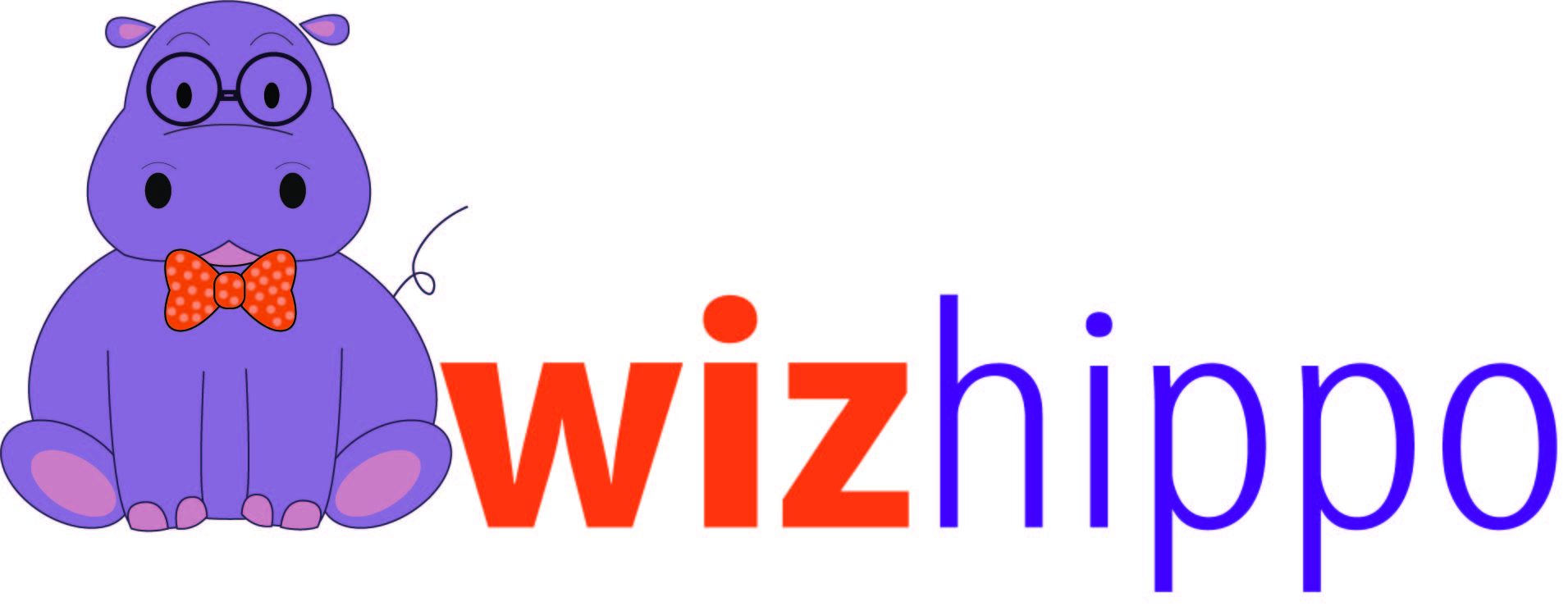
Managing food allergies and dietary restrictions in daycare settings is a critical responsibility that requires careful planning, vigilant oversight, and clear communication with parents, staff, and children. Daycare centers, preschools, and early learning facilities must ensure that all children’s health needs are met while creating an inclusive environment where dietary requirements are handled with care and precision. Whether dealing with common allergies like peanuts, dairy, or gluten, or managing religious and personal dietary restrictions, having a well-organized system in place is key to ensuring every child’s safety and well-being.
In this blog, we’ll provide guidance on managing food allergies and special diets in daycare settings, and show how technology, like daycare management systems such as WizHippo, can help streamline meal planning, dietary tracking, and communication between parents and staff.
The Importance of Managing Allergies and Dietary Restrictions in Daycare
Food allergies and dietary restrictions are increasingly common in young children, with millions of children around the world affected by conditions such as nut allergies, lactose intolerance, celiac disease, and more. For daycare providers, ensuring that children with allergies and special diets are safe requires proactive planning, constant vigilance, and clear processes for meal preparation and monitoring.
Here’s why proper management of allergies and dietary restrictions is essential in daycare settings:
- Safety and Health: Food allergies can lead to severe and potentially life-threatening reactions. Managing dietary restrictions and allergies is not just about compliance—it’s about protecting the health and safety of children in your care.
- Parent Trust: Parents entrust daycare providers with the well-being of their children. Demonstrating that you have clear protocols for managing allergies and special diets builds trust and reassures parents that their child’s health needs will be met.
- Inclusivity: Ensuring that children with dietary restrictions can participate fully in mealtimes and celebrations fosters a sense of inclusivity and helps children feel valued and cared for, regardless of their dietary needs.
Steps for Managing Allergies and Dietary Restrictions
1. Obtain Detailed Allergy and Dietary Information from Parents
The first step in managing allergies and dietary restrictions is gathering comprehensive information from parents about their child’s specific needs. This should be done during the enrollment process and regularly updated as needed.
- Allergy Forms: Provide parents with detailed forms to document their child’s allergies, dietary restrictions, and any required medical treatments. Ask for information about the severity of the allergy, symptoms of a reaction, and any medications (such as EpiPens) that may need to be administered.
- Dietary Preferences: In addition to allergies, ask parents about any religious, ethical, or cultural dietary restrictions their child may follow, such as vegetarianism, kosher or halal diets, or food sensitivities.
- Emergency Action Plans: For children with severe food allergies, work with parents to create an emergency action plan that outlines steps to take in case of exposure. This plan should be shared with all staff members and kept on hand in case of emergencies.
WizHippo’s documentation features allow daycare centers to store detailed allergy and dietary information for each child, ensuring that all staff members have access to up-to-date records in real time.
2. Implement Clear Labeling and Storage Procedures
Proper food labeling and storage are essential for preventing accidental exposure to allergens in a daycare setting. Even small traces of allergens can cause severe reactions in some children, so it’s important to have strict protocols for managing food.
- Labeling Meals and Snacks: Ensure that all meals, snacks, and ingredients are clearly labeled, especially when serving multiple children with different dietary needs. For example, use color-coded labels to distinguish between meals that contain allergens and those that are allergen-free.
- Separate Preparation Areas: If possible, create designated areas for preparing allergen-free meals to avoid cross-contamination. Use separate utensils, cutting boards, and storage containers for food that needs to be allergen-free.
- Monitor Ingredients: Keep a detailed list of ingredients for all meals and snacks served at the daycare. Review labels carefully to ensure that no hidden allergens are present, and avoid serving foods that carry a high risk of cross-contamination (e.g., bulk bins for nuts or seeds).
WizHippo’s meal planning tools allow daycare providers to document and label ingredients, track which children are being served specific meals, and maintain records of allergens to reduce the risk of accidental exposure.
3. Train Staff on Allergy and Dietary Protocols
All daycare staff members must be fully trained in managing allergies and dietary restrictions, including how to recognize the signs of an allergic reaction and respond appropriately. Training should be ongoing to ensure that staff stay informed about best practices and new children’s needs.
- Allergy Awareness Training: Ensure that all staff are trained to recognize the symptoms of an allergic reaction, which may include hives, swelling, difficulty breathing, or anaphylaxis. Staff should know how to administer emergency medication, such as an EpiPen, and how to follow the child’s emergency action plan.
- Safe Food Handling: Train staff in safe food handling practices to prevent cross-contamination, including washing hands, sanitizing surfaces, and using separate utensils for preparing allergen-free meals.
- Communication Protocols: Ensure that staff know how to communicate with parents about any incidents, dietary concerns, or changes in the child’s dietary needs. Clear, timely communication is key to building trust with families.
With WizHippo, administrators can track staff training certifications and ensure that all team members are up to date on allergy management protocols, food safety, and emergency response procedures.
4. Create a Safe Mealtime Environment
Mealtime can be a stressful experience for children with allergies or dietary restrictions, especially if they feel excluded from the group. Creating a safe, inclusive environment for mealtimes helps reduce the risk of allergic reactions while making sure that all children feel comfortable.
- Seating Arrangements: Depending on the severity of a child’s allergies, you may need to create separate seating arrangements for children with severe allergies (e.g., a “nut-free” table). This helps minimize the risk of exposure from other children’s food.
- Inclusive Celebrations: When planning birthday parties or other special events, make sure that children with allergies or dietary restrictions have access to safe alternatives. For example, provide allergen-free cupcakes or treats so that no child is left out of the celebration.
- Empower Children: Teach children with allergies to advocate for themselves by encouraging them to ask questions about their food and alert staff if they feel unsure about something. Helping children understand their allergies builds confidence and promotes safety.
WizHippo’s meal scheduling and dietary tracking features ensure that mealtime plans are inclusive and accommodate the dietary needs of all children, making it easy to plan special events and celebrations with care.
5. Communicate Regularly with Parents
Ongoing communication with parents is essential to managing allergies and dietary restrictions. Keep parents informed about their child’s meals, any incidents or concerns, and updates to the daycare’s food safety protocols.
- Daily Meal Reports: Send parents daily reports on what their child ate, noting any substitutions or accommodations made for their dietary needs. Parents will appreciate knowing that their child’s diet is being monitored and respected.
- Notify Parents of Allergies in the Group: If there is a child in the group with severe allergies, inform other parents to avoid sending snacks or meals that could pose a risk. For example, if a child has a peanut allergy, let other parents know to avoid sending peanut-based snacks.
- Discuss Any Incidents Immediately: If there is an accidental exposure to an allergen or a dietary mistake, contact parents immediately to inform them of what happened and the steps taken to address the situation.
WizHippo’s parent communication portal allows teachers to share daily meal reports, updates, and notes with parents, ensuring clear and transparent communication about their child’s dietary needs and safety.
How Technology Can Streamline Allergy and Dietary Management
Using daycare management software like WizHippo can greatly simplify the process of managing allergies and dietary restrictions, ensuring that all dietary needs are tracked, communicated, and followed consistently. Here’s how technology can help:
- Meal Planning and Tracking: WizHippo’s meal planning features allow daycare staff to create custom meal plans for children with allergies or special diets. Each child’s dietary needs are documented in the system, making it easy to generate safe and compliant meal plans every day.
- Allergy Documentation: All allergy and dietary information is stored in the system, accessible to staff at any time. WizHippo’s digital records ensure that no important information is lost or overlooked, and staff can easily review each child’s dietary needs before mealtimes.
- Parent Communication: WizHippo’s parent portal allows for real-time communication between staff and parents. Teachers can share daily meal updates, notes, and even photos of the child’s meals, keeping parents informed and involved in their child’s care.
- Emergency Alerts: In the event of an allergic reaction or incident, WizHippo’s system allows for immediate alerts to be sent to staff and parents, ensuring that quick action can be taken in case of an emergency.
By integrating WizHippo into your daycare’s operations, you can streamline meal planning, ensure compliance with dietary restrictions, and provide a safer, more inclusive environment for all children.
Conclusion
Managing allergies and dietary restrictions in daycare settings requires careful planning, organization, and communication. By implementing clear protocols for meal planning, food preparation, and staff training, daycare centers can ensure the safety and well-being of all children in their care. Using technology like WizHippo to track dietary needs, plan meals, and communicate with parents simplifies the process, reducing the risk of errors and providing peace of mind to both staff and families.
Want to learn more about how WizHippo can help your daycare manage allergies and dietary restrictions? Visit WizHippo today to discover how our platform can streamline your operations and ensure the health and safety of every child in your care.

Stay Updated with the Latest in Daycare Management!
Subscribe to our newsletter to receive expert tips, industry news, and special offers straight to your inbox. Plus, get exclusive access to free resources and guides to help you streamline your childcare operations.
